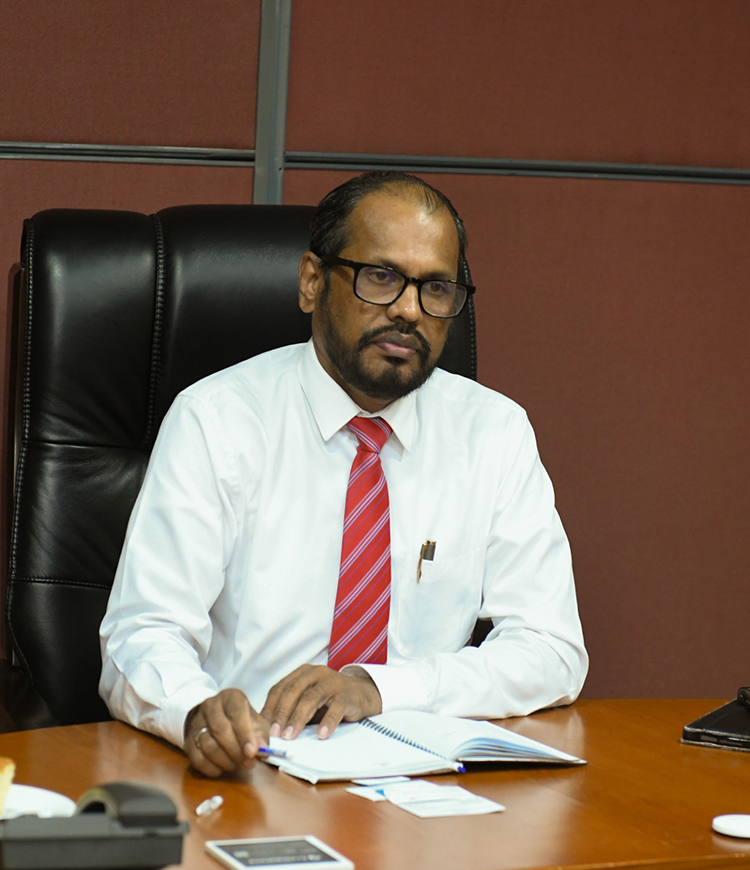EDB engages with pharma association to enhance SL’s export potential in pharmaceuticals

The Sri Lanka Export Development Board (EDB) on 1st July, 2025 held a productive and insightful discussion with the Sri Lanka Pharmaceutical Manufacturer’s Association (SLPMA) to explore collaborative pathways for the development of the local pharmaceutical sector with a strong focus on export growth and overcoming key industry bottlenecks. The meeting was attended by the key representatives of the SLPMA, including Mr. Nalin Kannangara (President), Mr. Dinesh Athapaththu (Senior Vice President), Mr. Viraj Manatunga (Vice President), Dr. Janaka Wickramasinghe (COO, Navesta Pharmaceuticals), Dr. Anoop Segar (Sands Active Pvt. Ltd.), and Mr. Kalana Hewmallika (Chairman, Gamma Interpharm Pvt. Ltd.).
Recognized as a promising and emerging sector, Sri Lanka’s pharmaceutical manufacturing industry is poised not only to make Sri Lanka self-sufficient in essential medicine, but also for positioning itself as a key export-oriented industry capable of earning and saving valuable foreign exchange. Currently, approximately 25 local pharmaceutical manufacturers operate in the country, and they have collectively invested over Rs. 100 billion during the past ten years. These investments aim to expand manufacturing capabilities and meet the increasing demand in both domestic and international markets. The local industry presently holds a 15% share of the domestic pharmaceutical market and supplies over 80% of its production to the government’s Medical Supplies Division (MSD). In 2024, Sri Lanka’s pharmaceutical exports reached $ 8.07 million.
Expressing his views at the discussion, the SLMPA President Mr. Nalin Kannangara highlighted that the 23 member companies of the association supply around 35% of the pharmaceutical requirements of government hospitals and produce over 235 products locally. He emphasized that the primary constraint in accessing global markets lies in meeting the stringent international regulatory standards, a challenge inherent to this highly regulated sector.
He further stressed the importance of extending the government’s buyback agreement – which enabled local manufacturers to progress from 15 products in 2015 to 235 products in 2025 – to support manufacturers in scaling up production. The extension of the buyback agreement would aid larger batch production, helping manufacturers reduce unit costs and enhance competitiveness globally.
The discussion also shed light on the complexity of pharmaceutical exports compared to other product categories. Export procedures typically require registration with the buyer country’s medical regulatory authority, often entailing significant time and costs. In addition, documentation such as product registration certificates and GMP certificates must be authenticated by respective country missions in Sri Lanka. Hence, stakeholders strongly advocated for increased institutional support to facilitate global market entry.
Mr. Viraj Manatunga, Vice President of the SLPMA and Chairman of the Pharmaceutical Advisory Committee – EDB, underscored the critical need for a comprehensive strategy for the pharmaceutical manufacturing sector. He acknowledged the EDB’s prior engagement with the Ministry of Health and the World Health Organization (WHO) – Sri Lanka, which laid the foundation for the current ADB-funded programme on development of a Strategy for the Sri Lankan Pharmaceutical Sector. The strategy is now in its final development phase following a detailed situational analysis. Mr. Manatunga highlighted that implementation and adaptation of this strategy would be vital to unlocking the sector’s full potential.
The meeting concluded with EDB Chairman Mr. Mangala Wijesinghe, urging stakeholders to compile and submit the key challenges facing the sector to the Export Development Council of Ministers (EDCM) meeting, chaired by His Excellency the President of Sri Lanka, in order to secure high-level policy attention and resolution to increase the export potential of the nation’s pharmaceutical industry.



Source: Ada Derana